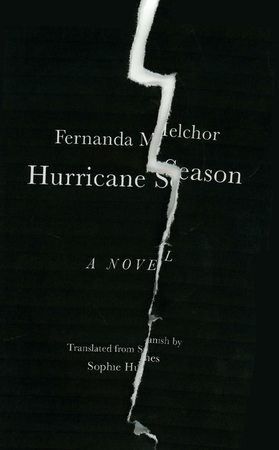Electric Lit relies on contributions from our readers to help make literature more exciting, relevant, and inclusive. Please support our work by becoming a member today, or making a one-time donation here.
.
August is Women in Translation month, dedicated to works of literature originally written by women in languages other than English. As we explained in our 2018 version of this list, such works make up a tiny percentage of the books published in the United States each year, though with increased attention and dialogue around them, publishers will have an incentive to put out more. Consider this your excuse to tour the globe, absorbing its richly varied stories through the eyes of women whose first language is Korean or Polish or Arabic or French. Below are nine translated novels that first appeared in English in 2019 or 2020. (If graphic narratives are more your speed, there are also many wonderful women authors on our recent list of translated graphic novels.)
That Hair by Djaimilia Pereira de Almeida, translated by Eric M. B. Becker
Half-Angolan, half-Portuguese Mila moved from Luanda to Lisbon at the age of 3. As an adult, she makes one demoralizing visit after another to Portuguese salons that have no idea what to do with her “rebellious mane,” applying abrasive chemicals and time-consuming weaves that soon fall apart. Mila sees this tale as a geopolitical one that spans continents, and in an associative style, tells it through memories of her parents and grandparents, interrogating even her own compulsions to notice and want to police the behavior of other Black people.
Kim Jiyoung, Born 1982 by Cho Nam-Joo, translated by Jamie Chang
Millennial Kim Jiyoung experiences rampant patriarchy at every stage of her upbringing in contemporary South Korea. As a young wife and mother, she finally snaps in front of her in-laws and questions the expectation that she must bend over backwards to serve them. Apologizing that she must be ill, her horrified husband ushers her to a male psychiatrist, whose notes constitute the novel. Jiyoung even starts to dissociate, believing that she can seamlessly transform into other women. Though in some ways a relatively straightforward catalog of relentless patriarchal pressure, Jiyoung’s critiques are also anti-capitalist, as she wonders who could possibly be happy even if they were the last person standing in a world with today’s priorities.
Little Eyes by Samanta Schweblin, translated by Megan McDowell
In Argentine author Schweblin’s latest novel, a tech craze for cute, furry robot animals is sweeping the globe, dividing the world into “keepers” and “dwellers.” Keepers purchase a camera-equipped kentuki—which come in a range of species, from crows and dragons to rabbits and moles—while dwellers purchase a remote controller that pairs them with one kentuki elsewhere in the world, allowing them to interact with and peer into a stranger’s life through the robot. The novel runs through many vignettes of such pairings. From displaced maternal feelings to disturbing sexual demands, kentuki prove to be just the latest vehicle for anonymous connection and digital intimacy in our increasingly networked yet still frequently lonely internet age.
Tropic of Violence by Nathacha Appanah, translated by Geoffrey Strachan
Mauritian-French author Appanah tells the story of Moïse, a boy growing up in the postcolonial chaos of Mayotte, an island in the Mozambique channel and neglected department of France. When Marie—the white nurse who adopted him as an abandoned baby—dies suddenly, 14-year-old Moïse falls in with the brutal gang leader whose child soldiers run a nearby slum. Different characters narrate the many short, vivid chapters, some like Marie speaking helplessly from beyond the grave about the devastating yet inevitable events that ensue.

The Frightened Ones by Dima Wannous, translated by Elisabeth Jaquette
In recent-day Syria, Suleima and Naseem meet in their therapist’s waiting room, leading to an intense affair that ends abruptly as Naseem flees Assad’s dictatorship for Germany. However, he soon sends Suleima an unfinished manuscript that contains a close fictional double of herself. Suleima, who escapes to Beirut herself, struggles with her mental health as she looks back on her family’s difficult history in Syria, her narration interspersed with chapters narrated by her fictional version in Naseem’s unnamed book.
Drive Your Plow Over the Bones of the Dead by Olga Tokarczuk, translated by Antonia Lloyd-Jones
Nobel laureate Tokarczuk sets this mystical murder mystery in a Polish village near the Czech border that contains a few year-round locals and many second homes for city dwellers. Older English teacher Janina Duszejko is one of the former; she spends her free time translating Blake with former student Dizzy and drawing up horoscopes using elaborate astrological charts she believes in fervently. When local men, many of them hunters who mistreat animals and dismiss the eccentric Janina, start showing up dead and surrounded by animal artifacts, Janina believes said Animals (she, like Blake, prefers to capitalize the word) are finally exacting their revenge and is determined to convince others of the same.
The Girl in the Tree by Şebnem İşigüzel, translated by Mark David Wyers
In the wake of Turkey’s violent 2013 Gezi Park protests, a 17-year-old girl sits in a tree in Istanbul’s Gülhane Park, reading Italo Calvino’s The Baron in the Trees (of which this novel is itself a sort of update). Aware that she might appear like she’s lost her mind, she chats with a bellboy from a nearby hotel who brings her food and water for weeks. She reflects on various heartbreaks, from an aunt who disappears to friends who were killed in a bombing and a teacher who ridiculed a deeply personal story she wrote, until her reasons for the arboreal campout finally emerge.
Hurricane Season by Fernanda Melchor, translated by Sophie Hughes
In a provincial Mexican town, boys find the local Witch dead in a canal under a mass of black snakes. She was known for furnishing the women of the town with spells and cures, the men with orgiastic parties. Each of the chapters, which often contain pages-long sentences, provides a window into the consciousness of a different townsperson, showing how the Witch became the scapegoat for all the shames and desires they would have preferred to keep hidden.
The Lying Life of Adults by Elena Ferrante, translated by Ann Goldstein
Set in a more privileged neighborhood of Naples than the Neapolitan Quartet, Ferrante’s latest novel centers 12-year-old Giovanna, who comes to the story a good student and loyal daughter of progressive, educated parents. When her father makes a mean remark about how she looks like his estranged sister Vittoria, Giovanna sets off through the city to find her troubled aunt, forging a relationship and slowly untangling generations of family history that her parents had covered over with convenient lies, which leads her to new understandings about how she wants to conduct her own budding young adult life.








